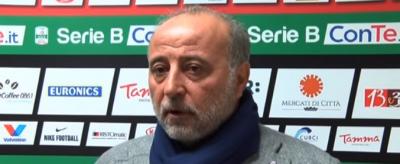Foggia Calcio rocked by further mafia charges

ROME - Fresh problems emerged for Serie B football side Foggia Calcio as their president, Fedele Sannella, was arrested by antimafia investigators on charges of money laundering, following the investigation and arrest of its honourary president in Dec 2017.
The Milan Prosecutor arrested Sannella, put the club under temporary receivership and requested a year-long judicial commission to investigate further. It is the first time that such a commission has been requested for a football club.
The arrest comes as part of a wider investigation from Milanese antimafia investigators, codenamed "Security", which has already led to temporary measures against 15 individuals and the arrest of Foggia's honourary president and stakeholder, Ruggiero Massimo Curci, for "promoting a system of evasion with the financial proceeds of the club."
The central claim of the investigation is that a criminal association has been promoting the financial interests of the Catanian mafia, particularly those of the Laudani family, in the Milan area. Money, the prosecutors allege, was illegally emptied from the current accounts of cooperatives and then "recycled" through this association.
Finance authorities in Italy seized €12 million from Foggia's former president, Curci, at the end of last year, after they uncovered a web of complex loans, embezzlements and bankruptcies involving the club.
Sannella is accused of laundering €400,000 through the club's coffers, using illicit funds to pay "players, managers and lawyers." The club is said to have profited from the operation to the tune of over €2 million.
Italian football has long been plagued by problems relating to match-fixing and connections with organised crime. Most notoriously during the Calciopoli scandal, uncovered by police in 2006, where a tight network of managers and referees conspired to rig games to their advantage.
However, in recent years attention has turned to club ownership, ticketing sales and the betting industry, all of which hold potential for organised crime.
In July 2016, a parliamentary commission concluded that “The ever-greater desire of individuals linked to organised crime to become members of club boards, especially in the lower leagues, is troubling", adding that "for organised crime, the world of football represents a useful flywheel with which to attract electoral, economic and financial consensus.”
tw


